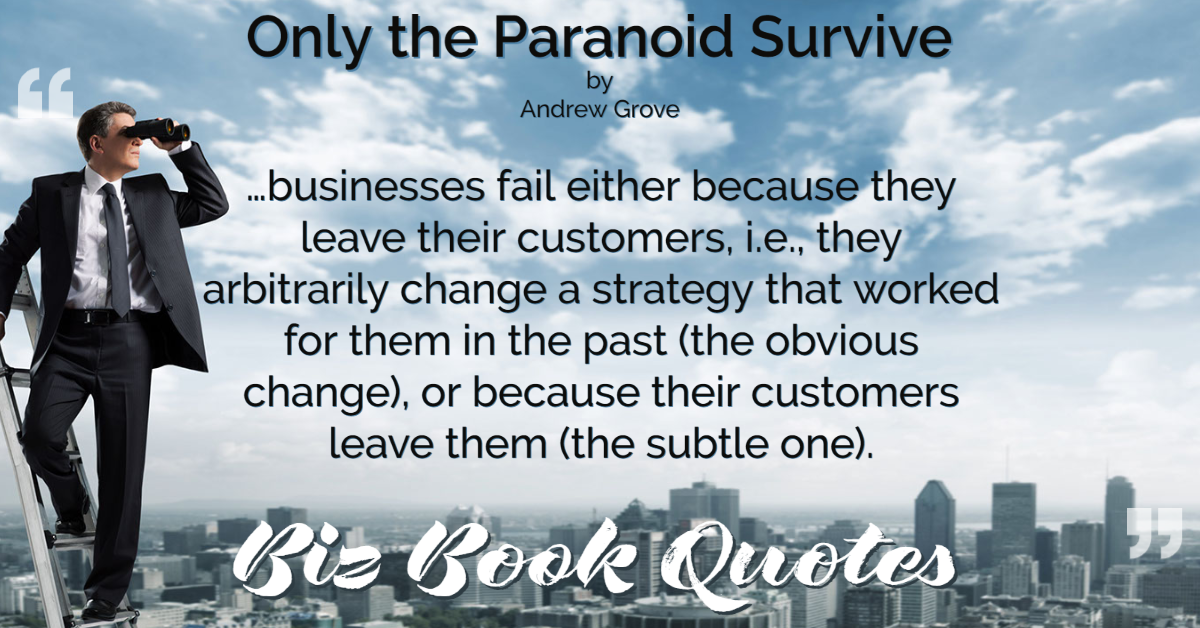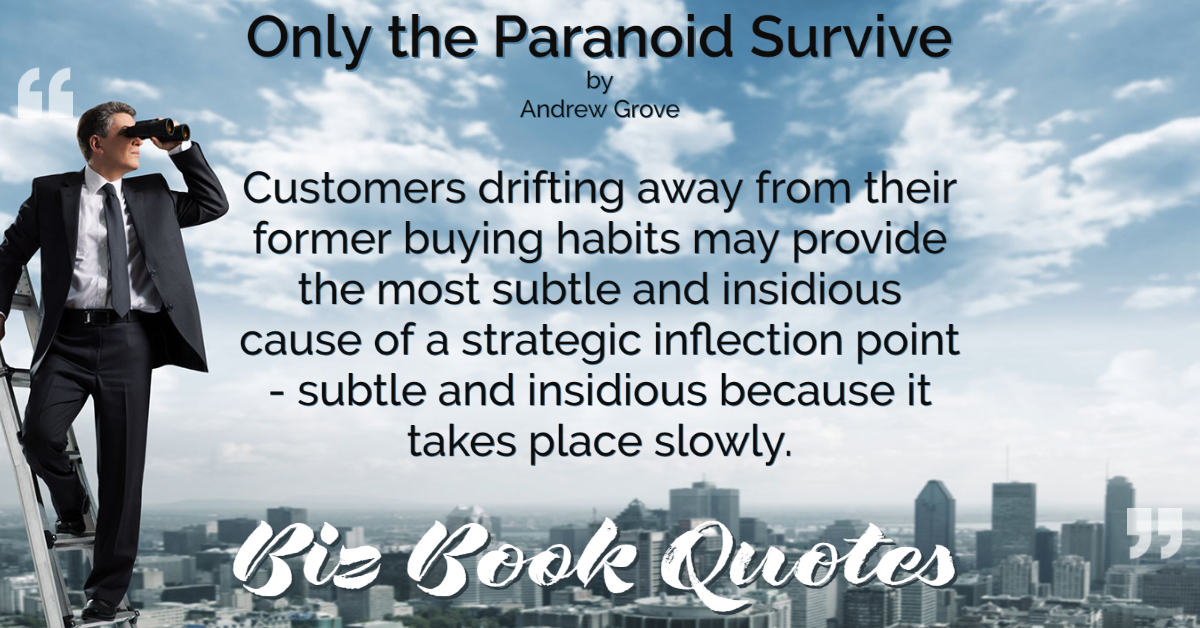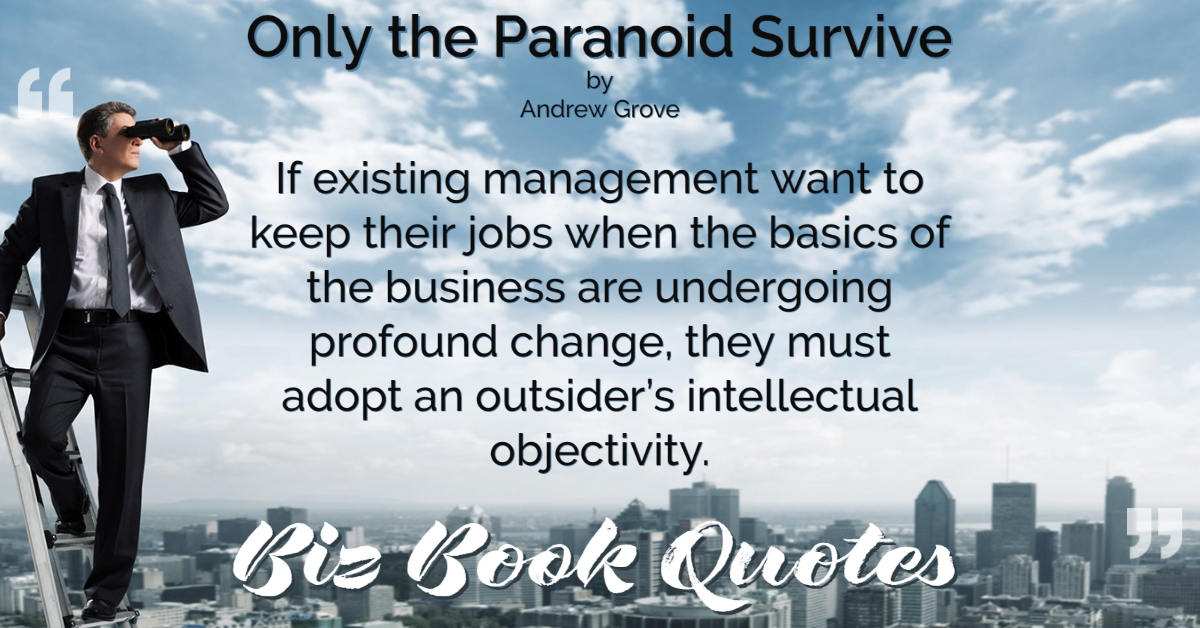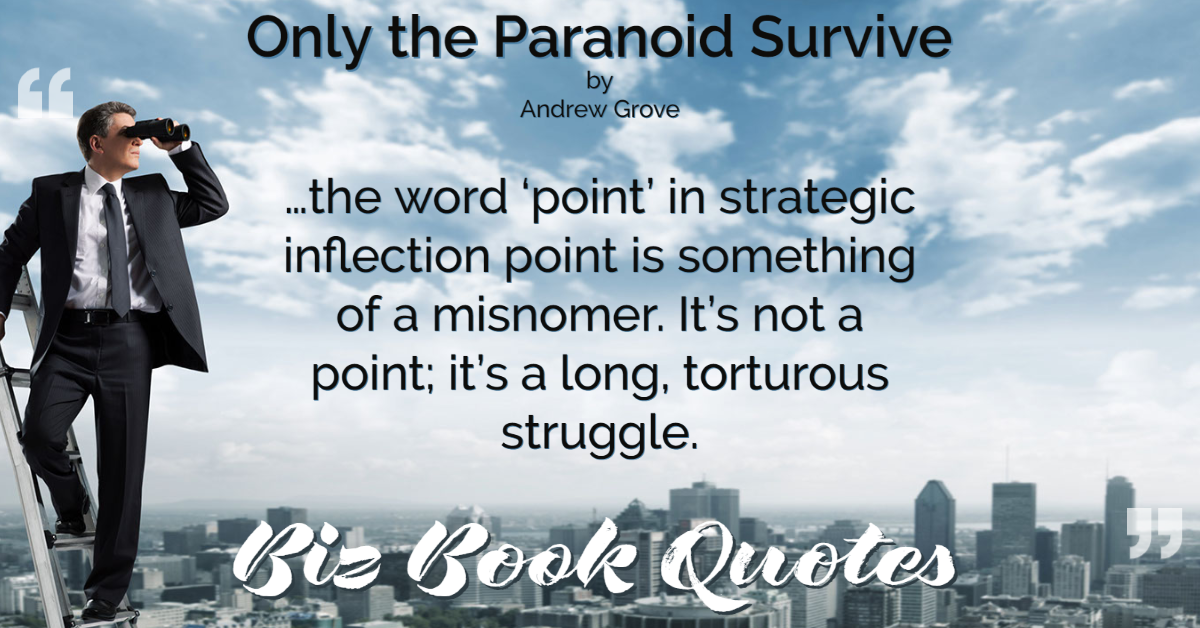|

|
Only the Paranoid Survive:
…businesses fail either because they leave their customers, i.e., they arbitrarily change a strategy that worked for them in the past (the obvious change), or because their customers leave them (the subtle one).
|
065 |
|

|
Only the Paranoid Survive:
Customers drifting away from their former buying habits may provide the most subtle and insidious cause of a strategic inflection point – subtle and insidious because it takes place slowly.
|
065 |
|

|
Only the Paranoid Survive:
When most companies of a previously regulated economy are suddenly thrust into a competitive environment, the changes multiply.
|
076 |
|

|
Only the Paranoid Survive:
…in times of fundamental change… the cliché ‘adapt or die’ takes on its true meaning.
|
076 |
|

|
Only the Paranoid Survive:
People who have no emotional stake in a decision can see what needs to be done sooner.
|
092 |
|

|
Only the Paranoid Survive:
…unlike the person who has devoted his entire life to the company and therefore has a history of deep involvement in the sequence of events that led to the present mess, the new managers come unencumbered by such emotional involvement…
|
092 |
|

|
Only the Paranoid Survive:
If existing management want to keep their jobs when the basics of the business are undergoing profound change, they must adopt an outsider’s intellectual objectivity.
|
093 |
|

|
Only the Paranoid Survive:
…the word ‘point’ in strategic inflection point is something of a misnomer. It’s not a point; it’s a long, torturous struggle.
|
095 |
|

|
Only the Paranoid Survive:
…strategic inflection points, painful as they are for all participants, provide an opportunity to break out of a plateau and catapult to a higher level of achievement.
|
095 |
|

|
Only the Paranoid Survive:
People in the trenches are usually in touch with impending changes early.
|
097 |











